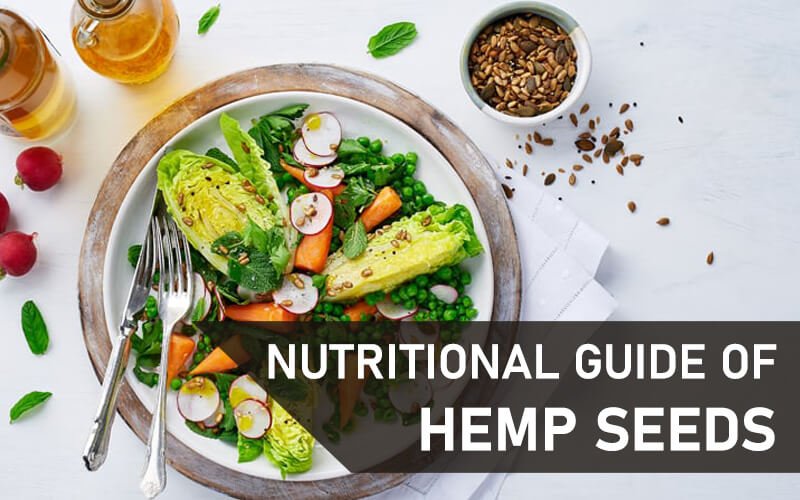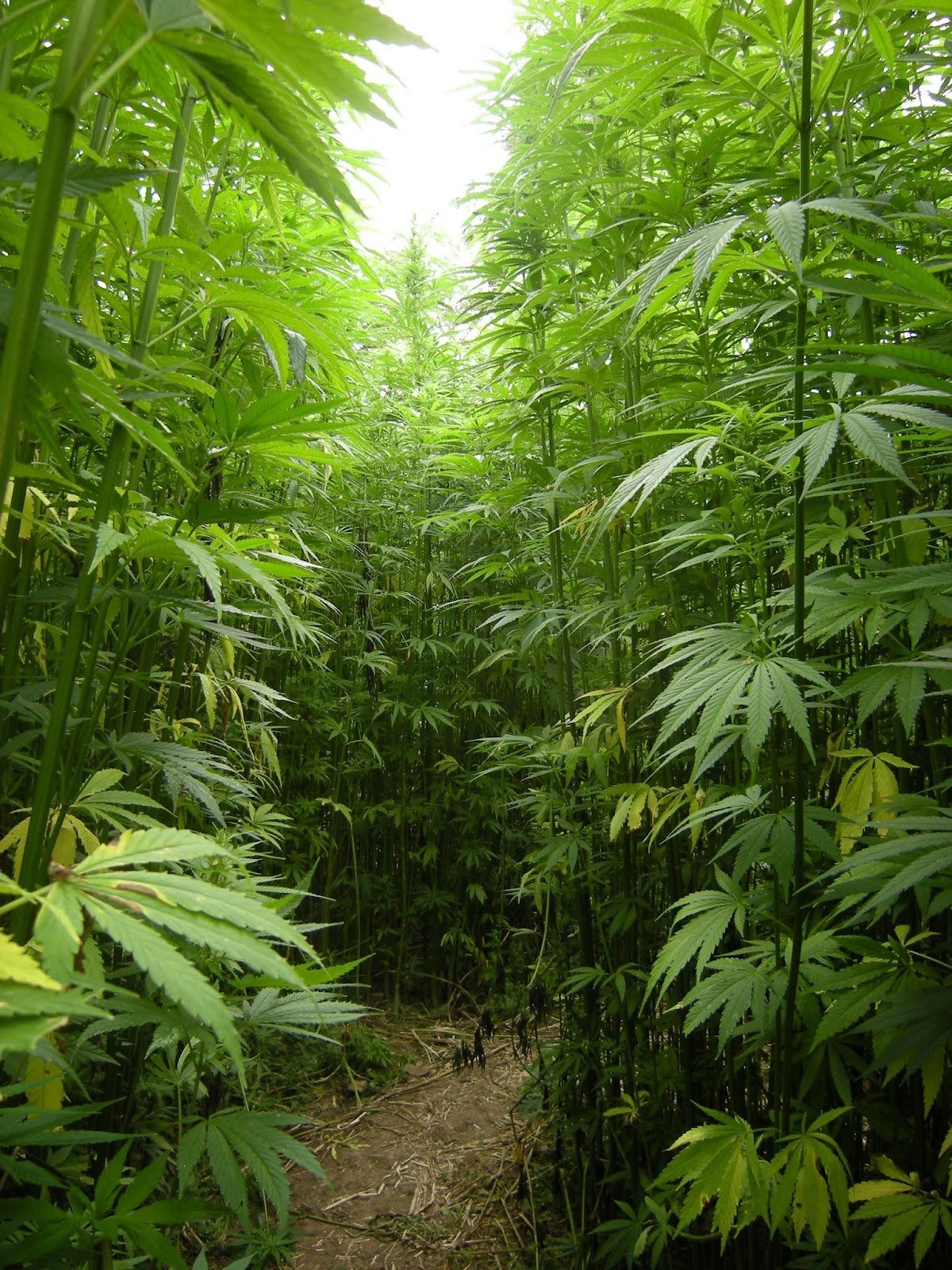Hemp Seeds Benefits and Detailed Nutritional Guide
Let us start with a clarification: hemp or industrial hemp as it is also called is not a narcotic. This confusion prevails because hemp belongs to the same plant species, Cannabis Sativa, as cannabis, the drug. But cannabis and hemp are different plants with varying chemical composition. Hemp seeds benefits run into dozens, and that’s literally forced world governments to rethink their stance on its legalization.
In a 2007 publication on hemp, the Department of Primary Industries and Fisheries, Government of Queensland, Australia, mentions that hemp is not psychoactive like its botanical kin cannabis or marijuana.
The chemical compound tetrahydrocannabinol (THC) is responsible for the mind-altering effect of narcotic cannabis.
The THC concentration in hemp is limited to only 0.3%, in comparison to cannabis or marijuana where the concentration is 7.5% or higher. This is why, cannabis is psychoactive, but hemp is not.
Hemp: A Historical Perspective
Hemp is one of the most ancient plants that human beings have been using since at least 10,000 years ago. This easy-to-grow versatile plant was very much in use till the early 20th century. Then governments across the globe declared war against it.
The Government of Queensland paper links the prohibition of hemp to the development of synthetics in the USA and elsewhere in the western world. We may or may not subscribe to that.
However, it is a historical fact that the critical distinction in the THC contents of marijuana and hemp got overlooked when the US government classified hemp as a drug.
That happened in the 1930s and much of the world soon followed the precedent set by the US.
This mistake started being questioned by scientists, researchers, and activists across the world since the 1980s. But it needed the new millennium to dawn for nation-states to start taking corrective measures.
Today, hemp cultivation and the manufacture and use of its products are legal again in some countries of the world. Countries like the US have made it legal across the country. Countries like India have only started legalizing it in limited geographical areas. Some countries are yet to decriminalize hemp, but considering the strong case made by advocates citing irrefutable hemp seeds benefits, it seems a question of when, rather than if.
Hemp: the Wonder Plant
Hemp really is a miracle plant. This annual plant grows easily without needing much care, which explains the derogatory alias “weed”. Being naturally pest-resistant, it needs no pesticides. It hardly ever needs additional irrigation. It grows organically on red loamy soil, soaking in the natural minerals and nutrients from the soil. So, it needs no additional manure either.
However, the real wonder of this humble plant lies in its versatility. People use the epithet “superfood” because of the amazing nutritional qualities of hemp seeds and the oil derived from them. The flowers, leaves, and stalks of hemp yield a different kind of oil that has several medicinal properties.
Fibers collected from hemp stems are usable for producing ropes, sails, and apparel fabric. Incidentally, the name canvas derives from cannabis. This material essential for fine arts originally derived from the stems of either variety of the Cannabis Sativa plants: cannabis and hemp.
Hemp fibers turn into hempcrete when mixed with water and a natural binder like lime. Hempcrete is a marvelous material for insulating buildings, and it comes with many ecological advantages. Hemp fibers can also produce hemp bioplastic, which offers a natural
the solution to the plastic pollution problem the world faces today.
Hemp oil can also be used as a renewable source of biofuel. However, we will now focus exclusively on the nutritional profile of hemp seeds.
Nutrients in Hemp Seeds
Source: alibaba
In the photograph above, on the left are Unhulled hemp seeds, and on the wooden ladle are hulled hemp seeds. When shelled, hemp seeds are also called hemp hearts. Hemp hearts retain much of the nutritional value of Unhulled hemp seeds, except the fiber content.
Nutrient Breakdown of Hulled Hemp Seeds
The US Department of Agriculture details the nutritional content of 100 grams of hulled hemp seeds as follows:
| Description | Amount |
| Energy | 567 kilocalories |
| Carbohydrate | 10 grams |
| Dietary fiber | 3.3 grams |
| Iron | 6.67 milligrams |
| Lipid (fat) | 50 grams |
| Potassium | 1200 milligrams |
| Protein | 30 grams |
| Saturated fatty acids | 5 grams |
It is important to note that hulled hemp seeds contain no cholesterol, no sugar, and no trans fatty acids. They are, thus, free from three components that pose several health hazards for human beings. However, hemp seeds with shells also lack in calcium, sodium, and vitamin D.
Hemp Seeds Benefits and Nutritional Details
The protein content of hemp seeds that retain their shells is as high as 30 grams per 100 grams in dry weight. Whole hemp seed protein consists of about 60-80% of globulin or edestin. Albumin constitutes the rest.
Edestin is a globular protein, which means it is biologically active. The human body uses edestin to produce antibodies, enzymes, hemoglobin, and hormones. Each of these plays a vital role in the way our organism functions.
Antibodies are the source of our immunological defense against onslaughts from harmful bacteria and viruses. They also protect the body from hazardous antigens and toxins that enter the human body through various sources.
Enzymes are necessary to catalyze and regulate all biochemical reactions of the body. They are essential for almost all our vital functions from cell growth and digestion and metabolism.
The hemoglobin in our red blood corpuscles is responsible for transferring oxygen from the lungs to the rest of the body. Hormones virtually coordinate and control all bodily functions.
The main function of albumin, the most abundant blood protein in mammals, is to stabilize the circulation of extracellular proteins. Simply put, albumin deficiency would cause human beings to suffer from edema.
This composition makes hemp seed protein one of the most nutritional plant proteins. It is also easily digestible. That makes hemp seeds an ideal dietary supplement for vegans, in particular.
The Ideal Composition of Fatty Acids in Hemp Seeds
Hemp seeds contain the good fat our body needs in high quantities. There is no saturated trans fat in hemp seeds, and other saturated fatty acid content is also very low. This is clear from the nutritional table shared above.
However, one of the most remarkable features of the fatty acids in hemp seeds is that the omega 3 and omega 6 content ratio is ideal for the human body. Both these fatty acids have beneficial effects on the cardiovascular health of human beings.
Experts say that one portion of omega 3 fatty acids to three portions of omega 6 fatty acids constitutes the perfect combination for human beings. That is precisely how these two fatty acids are combined in hemp seeds.
Along with these essential fatty acids, hemp seeds also contain polyunsaturated fatty acids, such as gamma-linolenic acid (GLA) and alpha-linolenic acid (ALA). Both of these are essential for the body and have several health benefits.
GLA helps maintain a healthy metabolism rate. It also contributes to the health of our brain, skeleton, and reproductive processes. GLA helps stimulate hair growth and has beneficial effects on the skin.
ALA helps to control the triglyceride (fat) level in the blood, which contributes to improved cardiovascular health. There have been experiments to demonstrate the ALA helps relieve rheumatoid arthritis and control depression.
In addition to all these hemp seeds benefits, it helps that these seeds lend themselves to different ways of consumption also. Go ahead and try these crunchy, nutty-flavored seeds for yourself!




